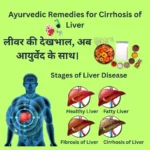Holistic Ayurvedic Approaches to Cancer Care
Introduction: You Are Not Alone in This Journey
Cancer is a word that can instantly bring fear and uncertainty. It affects not just the body but also the mind and emotions. For many people, cancer can feel overwhelming. But you are not alone. Support comes in many forms, and one such support system is Holistic Ayurvedic Approaches to Cancer Care.
Ayurveda is an ancient healing system from India that takes a whole-person approach. It focuses on the body, mind, and spirit. While Ayurveda does not claim to cure cancer, it can help in easing symptoms, improving quality of life, and supporting recovery when used alongside modern treatments. This blog will guide you through how Ayurveda offers gentle, holistic support to people going through cancer treatment.
Understanding Ayurveda
Ayurveda is a 5,000-year-old system of medicine that focuses on balance. It teaches that every person has a unique body type and internal balance called the Doshas:
- Vata (air and space)
- Pitta (fire and water)
- Kapha (earth and water)
Health is a state of balance between these Doshas. When they go out of balance, diseases occur. In the case of cancer, Ayurveda views it as a condition where the Doshas are deeply imbalanced, leading to the formation of abnormal tissue or “Arbuda.”
Ayurveda focuses on finding and treating the root cause of the disease rather than only addressing the symptoms. It uses herbs, diet, detox, yoga, meditation, and lifestyle practices to restore harmony and strengthen the body’s ability to heal.
Ayurvedic Approaches to Cancer Treatment
In Ayurveda, cancer is not just a physical illness. It is seen as the result of long-term imbalances, poor digestion, toxin accumulation (known as Ama), and weakened immunity (Ojas). Ayurvedic treatment aims to reverse these underlying causes.
Goals of Ayurvedic Cancer Care:
- Detoxification (Shodhana): Remove toxins from the body.
- Strengthen Immunity (Ojas-building): Enhance natural strength and resilience.
- Balance Doshas: Restore the harmony of Vata, Pitta, and Kapha.
- Support Mind and Emotions: Use practices that calm anxiety and fear.
- Rejuvenation (Rasayana): Build long-term strength and vitality.
Common Ayurvedic Treatments Used:
- Herbal Medicines: Herbs like Ashwagandha, Guduchi (Giloy), Turmeric, and Amla are used to boost immunity and reduce inflammation.
- Panchakarma Therapy: A deep cleansing process that removes toxins and rejuvenates tissues.
- Rasayana Therapy: Special herbal tonics and foods to rebuild strength after chemotherapy or radiation.
- Diet Therapy: Using specific diets to improve digestion and assimilation of nutrients.
- Lifestyle Changes: Focused on good sleep, rest, and emotional well-being.
Note:
Always consult your oncologist before starting any Ayurvedic treatment. Some herbs may interfere with medications or chemotherapy.
Managing Cancer Symptoms with Ayurvedic Remedies
Cancer and its treatments often bring many uncomfortable side effects such as fatigue, nausea, loss of appetite, and sleep problems. Ayurveda offers natural ways to manage these issues.
Common Cancer Symptoms and Ayurvedic Support:
| Symptom | Ayurvedic Approach |
|---|---|
| Nausea | Ginger tea, Cardamom, Lemon water |
| Fatigue | Ashwagandha, Chyawanprash, Rest routines |
| Loss of Appetite | Fennel, Cumin tea, Digestive herbs |
| Mouth Sores | Licorice root rinse, Coconut oil pulling |
| Hair Loss | Bhringraj oil massage, Amla juice |
| Anxiety | Brahmi, Tulsi tea, Deep breathing |
These remedies are gentle and easy to follow. They support natural healing without causing additional stress on the body.
Integrating Ayurveda into Cancer Treatment for Better Outcomes
Ayurveda does not replace medical treatment but complements it. When used together with modern cancer treatments, Ayurveda helps manage side effects, strengthen the body, and improve emotional well-being.
Benefits of Integration:
- Reduces chemotherapy side effects such as nausea, fatigue, and mouth sores
- Supports better digestion and nutrient absorption
- Improves emotional strength and mental clarity
- Enhances sleep quality and relaxation
- Promotes overall sense of well-being
Example:
A woman in her early 50s undergoing chemotherapy for breast cancer reported reduced fatigue and improved digestion after starting Ashwagandha and ginger tea under Ayurvedic guidance. She also practiced daily meditation and gentle yoga, which helped her feel more grounded and calm.
Always use Ayurveda under the supervision of both your oncologist and a qualified Ayurvedic practitioner. Each case is different, and safety is most important.
Ayurvedic Practices for Emotional Support During Cancer Treatment
Cancer affects the mind as much as the body. Ayurveda offers many tools to bring emotional balance during this stressful time.
Ayurvedic Mind-Body Practices:
- Abhyanga (Oil Massage): Regular oil massage helps reduce stress and improve sleep.
- Shirodhara: A therapy where warm oil is poured on the forehead to calm the mind.
- Meditation and Dhyana: Helps in managing fear, anxiety, and emotional pain.
- Pranayama (Breath Control): Simple breathing exercises help in calming the nervous system.
- Mantra Chanting: Repeating positive sounds or prayers brings inner strength and focus.
Emotional care is often overlooked in cancer treatment. Ayurveda reminds us that peace of mind is just as important as physical healing.
Yoga and Ayurveda for Cancer Patients
How Ayurveda Can Help in Cancer Prevention and Treatment
Yoga is deeply connected to Ayurveda. Gentle yoga can be very helpful for people going through cancer.
Yoga Practices for Cancer Care:
| Yoga Pose | Benefit |
| Child’s Pose (Balasana) | Calms the mind and reduces tension |
| Legs-Up-the-Wall (Viparita Karani) | Relieves fatigue and boosts circulation |
| Seated Forward Bend (Paschimottanasana) | Improves digestion and flexibility |
| Easy Pose with Breathing | Supports mental clarity and focus |
Yoga should be practiced gently and only with proper guidance. It helps improve blood flow, reduce stress, and supports emotional balance.
Diet and Lifestyle Tips in Ayurveda for Cancer Care
Food is a powerful healer in Ayurveda. Eating the right food at the right time can support recovery and strength.
Dietary Tips:
- Eat freshly cooked, warm, and simple meals
- Avoid fried, spicy, or processed foods
- Include green vegetables, lentils, and whole grains
- Use spices like turmeric, cumin, coriander, and ginger
- Stay hydrated with herbal teas and warm water
Lifestyle Tips:
- Wake up early and sleep before 10 PM
- Take regular short walks in nature
- Avoid screen time at night
- Practice gratitude journaling or prayers
- Surround yourself with positivity and supportive people
These simple changes can have a big impact on your energy and mood.
Key Takeaways
| Point | Why It Matters |
| Ayurveda supports cancer care | Works alongside medical treatment |
| Helps manage side effects | Reduces fatigue, nausea, and anxiety |
| Focuses on whole healing | Treats mind, body, and emotions |
| Uses herbs, yoga, and lifestyle | Natural ways to feel better |
| Encourages emotional support | Helps cope with fear, sadness, and stress |
Conclusion: Healing the Whole You
Cancer is a tough journey, but healing is possible when we treat the whole person — not just the disease. Ayurveda offers a path to reconnect with your body, mind, and soul. It teaches us that healing includes rest, nourishment, and emotional care.
If you are considering Ayurvedic care during cancer treatment, speak with both your doctor and a qualified Ayurvedic practitioner. Together, you can create a plan that supports your unique journey.
At Devkalp Ayurveda, we believe in the power of natural healing. Visit our website for more resources, Ayurvedic tips, and personalized support.
FAQs – Holistic Ayurvedic Cancer Care
Ayurveda does not claim to cure cancer. It supports your healing journey when combined with modern medical treatments. Some herbs may interact with your medicines. Always speak with your doctor and an Ayurvedic expert before starting anything new. Ashwagandha, Turmeric, Guduchi, and Amla are often used to support immunity and reduce inflammation. Gentle yoga improves circulation, reduces stress, and helps you feel calm and balanced. You can begin Ayurvedic support at any stage, but it should always be done safely with your healthcare team’s knowledge.


